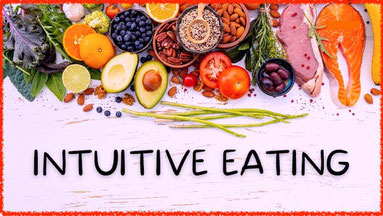
It is Ok to Listen to Your Body, but Without Losing Control
In today’s world of diet trends and food rules, Intuitive Eating offers a refreshing alternative. Instead of obsessing over calories or eliminating entire food groups, it invites us to reconnect with our body’s natural hunger and fullness cues. But there’s one key point often missed: intuition without awareness can backfire. That’s why intuitive eating should always walk hand in hand with healthy habits and body-conscious choices.
What Is Intuitive Eating?
The concept was originally developed by a group of dietitians. Intuitive eating is a mind-body approach that encourages eating when you’re hungry and stopping when you’re full — no diets, no restrictions. It aims to rebuild trust between you and your body. However, true intuitive eating doesn’t mean eating pizza every night just because you “feel like it.” It only means not ignoring your nutritional, physical, and emotional needs but practising it with care.
Why Intuitive Eating Can Be Healthy? If Done Right
When properly practiced with intention, intuitive eating can:
- Promote sustainable weight management
- Reduce emotional eating patterns
- Improve your relationship with food
- Support long-term physical and mental health
But, to Avoid Future Health Issues, here are a Few Key Guidelines to Follow
- Respect Hunger, But Nourish It Wisely: Eat when you're hungry, but always opt for nutrient-rich foods that support your energy levels and metabolic health. Think about lean proteins, whole grains, fruits, and vegetables.
- Avoid the Guilt Trap: No food can also be “bad”. The idea is to ditch the guilt, not to justify excess. A small piece of chocolate is fine once a day, but a full bar every day might not align with your health goals and produce serious future health issues.
- Recognize Fullness: Learn to pause and ask yourself. Am I still hungry, or just eating out of habit?. Typically, the brains need a bit of time (average 7 mins) to leave the hunger apart.
- Balance Intuition with Routine: Intuitive eating doesn’t mean chaos. Having a flexible eating pattern helps prevent binge cycles and supports body weight control.
- Include Movement in the Equation: A healthy lifestyle includes physical activity. Even light daily movements can improve your mood, regulate appetite, and help balance calories naturally.
- Check in With Yourself: Use journaling, mindfulness, or periodic measurements (like waist size, weight range, or periodic BMI measurements) to ensure you’re staying aligned with your health goals.
A Word of Caution
While intuitive eating offers freedom, it's not a license to ignore health guidelines. Especially if you have weight-related health concerns, prediabetes, or a sedentary lifestyle, it’s important to combine this approach with professional support, such as a Virtual Personal Trainer, nutritionist, or healthcare provider.
Last thoughts
Intuitive eating is powerful, but must be practised with caution. It can only be healthy useful when paired with mindful awareness and a commitment to health.
"Listen to your body, but lead it wisely. Your intuition is a tool, not an excuse".











Write a comment